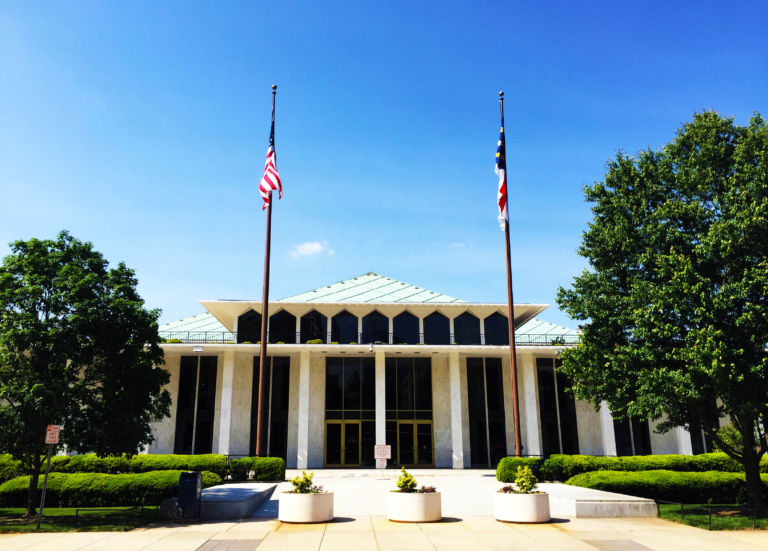On May 8, Salisbury voters overwhelmingly agreed on a resolution to lease the city’s Fibrant broadband system to a private company. The move to lease Fibrant to Hotwire Communications, approved by 81.5 percent of the voters, ushers the close of that particular municipal money sink.
According to the Salisbury Post:
Hotwire will pay the city 30 percent of its internet revenue, 10 percent of its video revenue and 10 percent of its voice revenue.
Based on those percentages, according to a report prepared by CTC Technology and Energy, Hotwire would pay the city $944,000 in the first year of the agreement.
That amount will be significantly offset by a nearly $500,000 increase in the payment the city makes on its refinanced debt for Fibrant.
Because the lease will give operation of Fibrant’s assets to Hotwire, a private company, the city will have to refinance its debt with taxable debt.
Fibrant’s failure and ultimate sale was entirely predictable. As early as 2009 researchers at the John Locke Foundation warned Salisbury leaders about other cities’ experience with getting into the broadband business. Michael Sanera and Katie Bethune wrote:
Although city officials intend for subscribers to pay for the system, the reality is city taxpayers are ultimately responsible for paying back the debt. According to the feasibility study conducted by Uptown Services, LLC., the same consultant used by the City of Wilson for its fiber-optic cable feasibility study, the system would need to attract 28 percent of Salisbury households to raise the revenue needed for it to be self-supporting. If the system could not attract that market share, however, city officials would have to turn to the taxpayers to pay back the $30 million loan.
The city has already indicated that it would increase the property tax rate by 9.5 cents on every $100 of assessed value to cover any shortfall. That would represent a 16 percent increase over the current property tax rate of 59 cents per $100 for non-downtown residents. This higher rate would give Salisbury the twenty-ninth highest rate in the state.
In other words, if the system failed to attract enough subscribers to reach the critical 28 percent subscription threshold, all Salisbury residents would end up paying for the network whether they use it or not.
Carolina Journal recently discussed Salisbury’s problems with Fibrant. They include:
Fibrant has been a financial drain on Salisbury taxpayers since its construction. Legacy providers AT&T and Time Warner reduced their rates after Fibrant began operations in 2008, which led to the municipal broadband network never meeting subscriber goals of 30 percent of city residents. The shortfall caused the city to borrow money from its water and sewer reserves for operating expenses. The city has been losing about $3 million per year operating Fibrant.
Between the initial bond and the loan from the reserve, Salisbury borrowed around $40 million for Fibrant, and still owes about $32 million. That’s because revenue from Fibrant has been so meager that for many years Salisbury was just paying the interest on the loans and not the principal.
Investor service Moody’s docked Salisbury’s bond rating after it raided the reserves to pay for Fibrant. That may particularly bite residents because the city would have to refinance $25 million of tax-exempt financing into taxable financing if it leases its system to a for-profit company.
Citing several cities’ bad experiences, Sanera and Bethune wrote
All of them had problems using subscriber revenue to pay for their systems. To pay the ever-mounting deficits, they either raised property taxes or increased utility rates, or in some cases both. Unable to stem the deficits, these cities eventually sold their systems to the private sector.
And there it is.
Action by the General Assembly
Although Salisbury did not learn from other cities’ bad experiences, state legislators did. In 2011, poor results with municipal broadband in Salisbury as well as Wilson, Mooresville, Davidson, and Morganton, prompted the General Assembly to pass the “Level Playing Field” law. That law, which largely didn’t apply to Fibrant, was aimed at protecting competition in other cities thinking about getting into the broadband business.
Among its provisions, the Level Playing Field law:
- required future municipal broadband systems to comply with all federal, state, and local laws to which private providers are subject
- prevented them from requiring subscribership from individuals or developments
- limited their sources of revenue to those generated by the service, not from other services’ funds
- forbid them from pricing services below cost
- disallowed municipalities from using non-voter-approved bonds to fund the service
The Federal Communications Commission under President Barack Obama — against the urging of the John Locke Foundation and others — attempted to preempt North Carolina’s law but failed. The Sixth U.S. Circuit Court of Appeals upheld the Level Playing Field law, as they should have.
Are Salisbury’s troubles over? It is too soon to say. As Carolina Journal points out, Hotwire’s rent targets ($944,400 in 2019 to $1.28 million in 2037) are just that: targets, not guarantees.
Nevertheless, four-fifths of municipal voters seemed to agree that leasing Fibrant to the private company would at least make the best of a bad situation.


